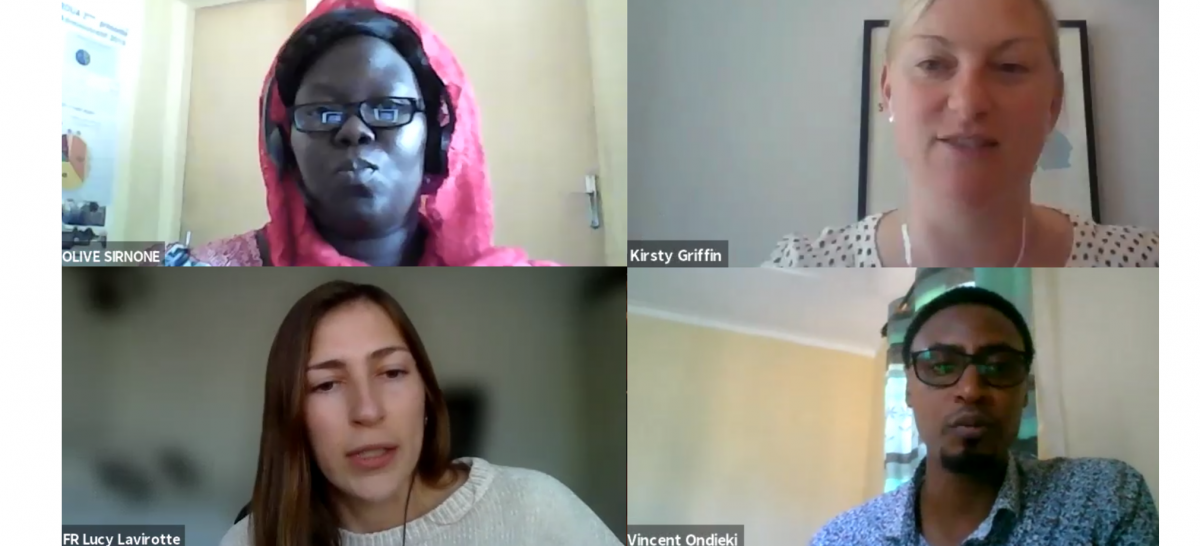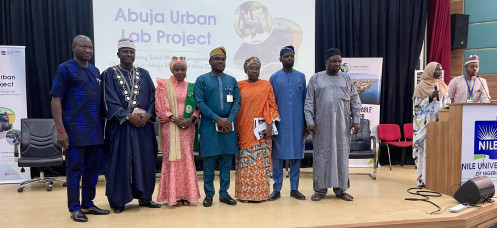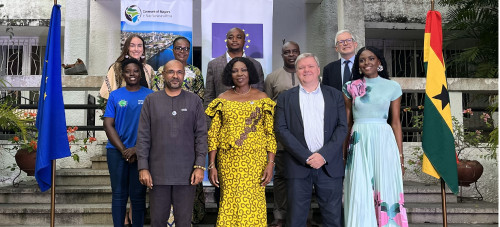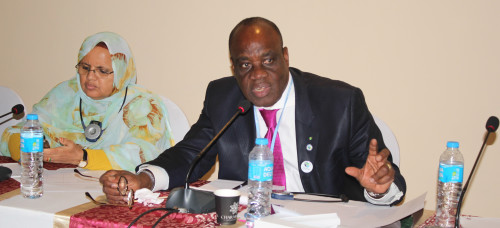SEACAP development process can enhance climate change awareness amongst communities and drive local action
Published: 8 Sep 2021

CoM SSA signatories exchanged on how they are using the development process of their Sustainable Energy Access and Climate Action Plans (SEACAPs) to not only address issues of climate change and lack of access to sustainable energy but also to inform the public about them.
Cities from the CoM SSA network; Bobo-Dioulasso, Nakuru County, Abuja and Garoua, came together at the June 2021 CoM SSA City-to-City exchange to share their experiences of how developing a SEACAP can raise awareness on climate change and the lack of access to sustainable energy. Other cities that joined the Exchange included the Municipality of Makindye Ssabagabo, Uganda; Bamako, Mali; Pikine, Senegal and Kisumu County, Kenya.
City-to-City Exchanges are a core component of the Covenant of Mayors in Sub-Saharan Africa (CoM SSA) as they foster collaboration between signatories on climate action and sustainable energy access by promoting dialogue and facilitating sustainable cooperation.
Using the SEACAP process to address climate change
The Exchange highlighted that cities are already facing climate change-related challenges but are committed to reducing emissions, enhancing resilience and improving access to sustainable energy through their process of developing a SEACAP.
Mr Hamidou Baguian from Bobo Dioulasso in Burkina Faso shared that their SEACAP, which is almost complete, includes actions such as developing and upgrading green corridors of the city to include indigenous trees and plants. This would not only reduce the impacts of heatwaves and drought but also increase food security and biodiversity.
While Nakuru County in Kenya and Garoua in Cameroon are still in the process of SEACAP development, the process is already benefiting these cities. Nakuru County prioritised developing the legal frameworks required to mainstream climate action into all sectors of the economy. According to the Director for Environment, Energy and Natural Resources, Ms Grace Karanja, the Nakuru County Climate Change Act, 2020, signed into legislation by Governor Lee Kinyanjui in April 2021, makes provisions for how the County should mobilise for robust climate action.
Ms Karanja highlighted that “developing the SEACAP comes at the right time” as the county’s main challenges include lack of data, lack of capacity, lack of awareness and lack of funding, and the SEACAP development process addresses many of these concerns. She further mentioned that the SEACAP development process made them realise that they were already mainstreaming climate change and this process was an “eye-opener that helped connect the dots”.
Using the SEACAP process to raise climate change awareness among communities
By deeply engaging with the three SEACAP pillars of adaptation, mitigation and access to energy, cities are able to sensitise their local populations about the challenges presented by climate change and how the city is working on creating a more resilient and livable city for all.
The data collection process in Nakuru County has been instrumental in addressing the lack of awareness experienced locally. Through workshops and on-the-ground data collection, the general public has learnt about climate change and clean energy access issues and, perhaps more importantly, allowed them to be part of the process. The same was true when the City of Pikine in Senegal and Kisumu County in Kenya were collecting data.
“Once communities understand why you need the data, they are ready and happy to share,” said Mr Vincent Ondieki, Sustainable Energy and Climate Change Project Officer for Expertise France, who worked in Kisumu County.
In Bobo Dioulasso, the SEACAP development process also meant sensitising the mayor about climate change and energy access challenges. The mayor himself went on to sensitise customary authorities to get them involved in the SEACAP development process.
Going a step further, the content of the SEACAP can also be used as a tool to raise local awareness. Mr Jean Raphael Hei Djob from the NGO Help Community in Garoua, Cameroon, mentioned how the team is compiling a glossary with the main climate change definitions, concepts, and slogans in local languages with illustrations to share with women's associations, churches, mosques, and schools to speak to populations most vulnerable to climate change effects. The SEACAP itself is also being translated into French to be accessible for all.
The Director for Climate Change in Kisumu County, Kenya, Mr Evans Gichana suggested using pictures and infographics as a tool to communicate some of the most important elements of the SEACAP to local communities. Cities can design an infographic to illustrate the importance of reducing greenhouse gas emissions to encourage public participation in implementing actions.
Other dissemination strategies include incorporating climate change challenges and solutions in the school curriculum, broadcasting sketches that explain climate change on national television and radio, and using social media and instant messaging, especially WhatsApp.
The CoM SSA City-to-City Exchange series will continue over the course of 2021 and 2022 as a virtual series discussing critical topics related to SEACAP development and implementation allowing cities to share their stories.





